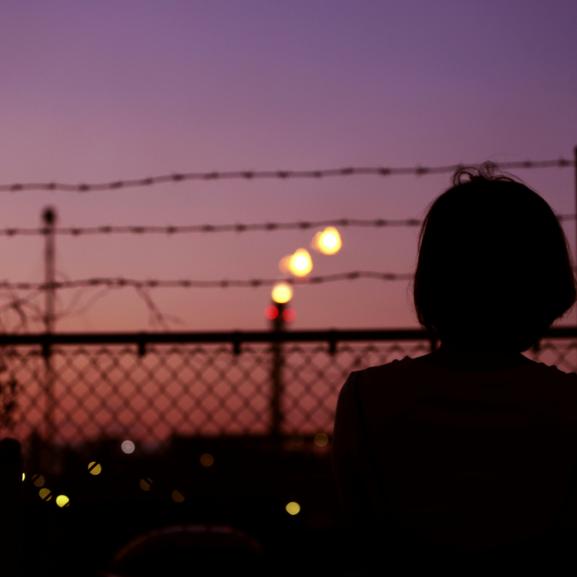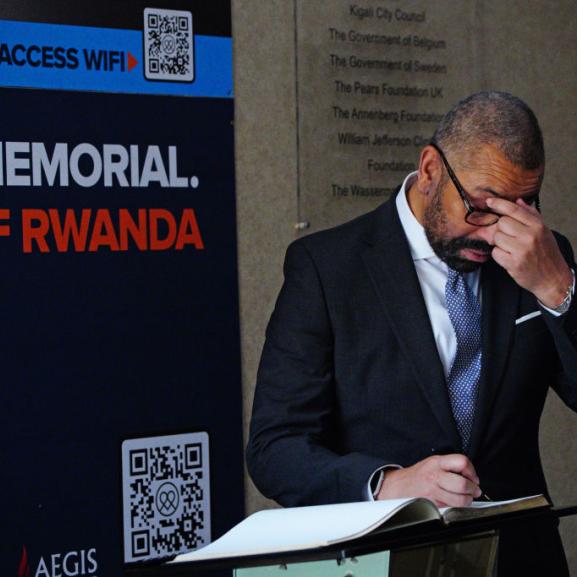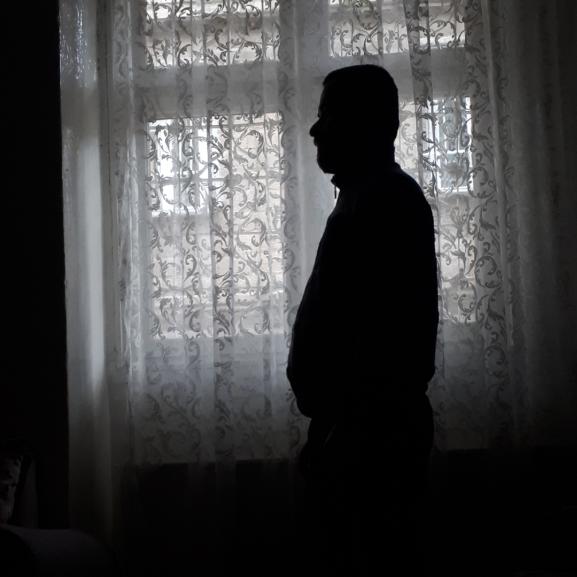'Go Back to Where you Came From' can never convey the true horrors I experienced in my journey to find safety
Having arrived to the UK for safety, Kolbassia Haoussou (Director of Survivor Leadership & Influencing at Freedom from Torture) explains why Channel 4’s 'Go Back to Where You Came From' can't convey the true horrors of the journey.
I came to the UK after being tortured in my home country. My journey to find sanctuary was difficult and dangerous, and it took months. I know only too well that nobody gets into an overcrowded and unstable dinghy to cross one of the world’s busiest shipping lanes without a desperate need to find safety.
The people taking part in Channel 4’s new programme ‘Go Back to Where you Came From’ will hopefully never experience the unimaginable, horrific things that drive men, women and children to leave their homes in the first place.
And a simulation of a small boat crossing can never truly convey the unpredictability and the danger of what that journey actually feels like. Whatever happens they’ll get to go home to their families in one piece. The anxiety and fear are almost impossible to describe – in real life, you have no idea if you’ll make it across safely. They’re not going to be stopped by border officials, they aren’t going to be put into immigration detention or sent back into the hands of their torturers. Because it’s a TV show they have layers of protection that are not afforded to refugees.
As well-meaning as the show’s intentions proclaim to be, it’s only perpetuating toxic views. It’s not only dehumanising, but downright dangerous. It was only last summer that violence – directed at people like me – erupted across the country. There is no place in our society for hateful comments directed at refugees or people of colour. And it puts people seeking sanctuary in the UK at very real risk of harm, including those that Freedom from Torture works with every day.
The scenes of hatred targeting refugees and other minority communities were awful to watch. But for the survivors that we support – many of whom live in hotels – their fear was unimaginable. Some were too scared to go to the supermarket, take their children to the playground, or come to our centres for vital therapy. No one should feel unsafe in Britain, but time and time again refugees are singled out as targets for far-right violence and intimidation. It will take me a long time to forget the images of people attacking and setting fires to hotels housing refugees – including families with young children. It was a stark and chilling reminder that hateful rhetoric inspires hateful acts. And there is no place for this on our streets.
The people trying to reach the UK in small boats are people who’re looking to us for protection
But what unfolded last year was not an accident. It was the result of years of the media stoking divisions, fanning the flames of hate and politicians pushing through inhumane anti-refugee policies. All of this has a very real impact on the people who’ve only come to this country to find safety, who just want to recover, and rebuild their lives in our communities.
Against this backdrop, we’re disappointed that Channel 4 has given a platform to those with hateful views. Rather than trivialising the plight of refugees for prime-time entertainment, the producers in the biggest newsrooms across the country have a responsibility to report on the realities of life in the UK for those who have come here seeking safety.
For the survivors I work with the realities are far from what’s splashed on the front pages. Many people are stuck in the asylum backlog, endlessly waiting for a decision on their claim – I know some people who’ve been waiting for over 10 years. Living in limbo is profoundly harmful, people are unable to heal, recover or move forward with their lives. Survivors talk about the re-traumatising effects of the places they’re forced to live in – former prison or military sites that call to mind the places in which they were tortured. The hotels that refugees live in come with serious health risks and the cramped conditions only worsen despair and anxiety of people who’ve already suffered so much.
But we know that most people want this country to be a place of welcome. We saw in the wake of the riots how acts of kindness and solidarity in Southport helped repair the damage caused by the far-right. We saw how hundreds of thousands of caring people fought alongside survivors to make it impossible for the previous government to enact their immoral Rwanda plan. More than 80% of the British public want a fair new plan for refugees, and we’re looking to the Government to show compassion, to unite our communities once again.
The new Borders Security Asylum and Immigration Bill risks criminalising and intensifying the vulnerability of those who are forced to rely on smugglers because there is no safe route for them to use. This is another piece of legislation that does nothing to address the root causes of why people must leave their homes to begin with. Instead, cracking down on the methods refugees use to escape war and torture will only make the journeys they have to take more dangerous. As long as torture exists, smugglers will continue to profit from desperate people who need a place of sanctuary.
Whatever our background or postcode, religion or race, we all deserve to live peacefully and free from harm. The people trying to reach the UK in small boats are people who’re looking to us for protection. They’re fleeing places like Afghanistan and Iran precisely because they value their human rights and believe that we do as well. They are democracy fighters, human rights defenders and women’s rights activists escaping authoritarian and oppressive regimes. Their lives have been put in danger just for fighting for the rights we take for granted every single day.
People move and will always move, so having an immigration system that is fair, efficient and compassionate is essential. With everything we’re seeing happening around the world, it’s time for grown up debate and for the UK Government to once and for all stand up for the rights of refugees.
Banner image credit: Romeo Gacad / Getty Images
Article first published in The New Arab







